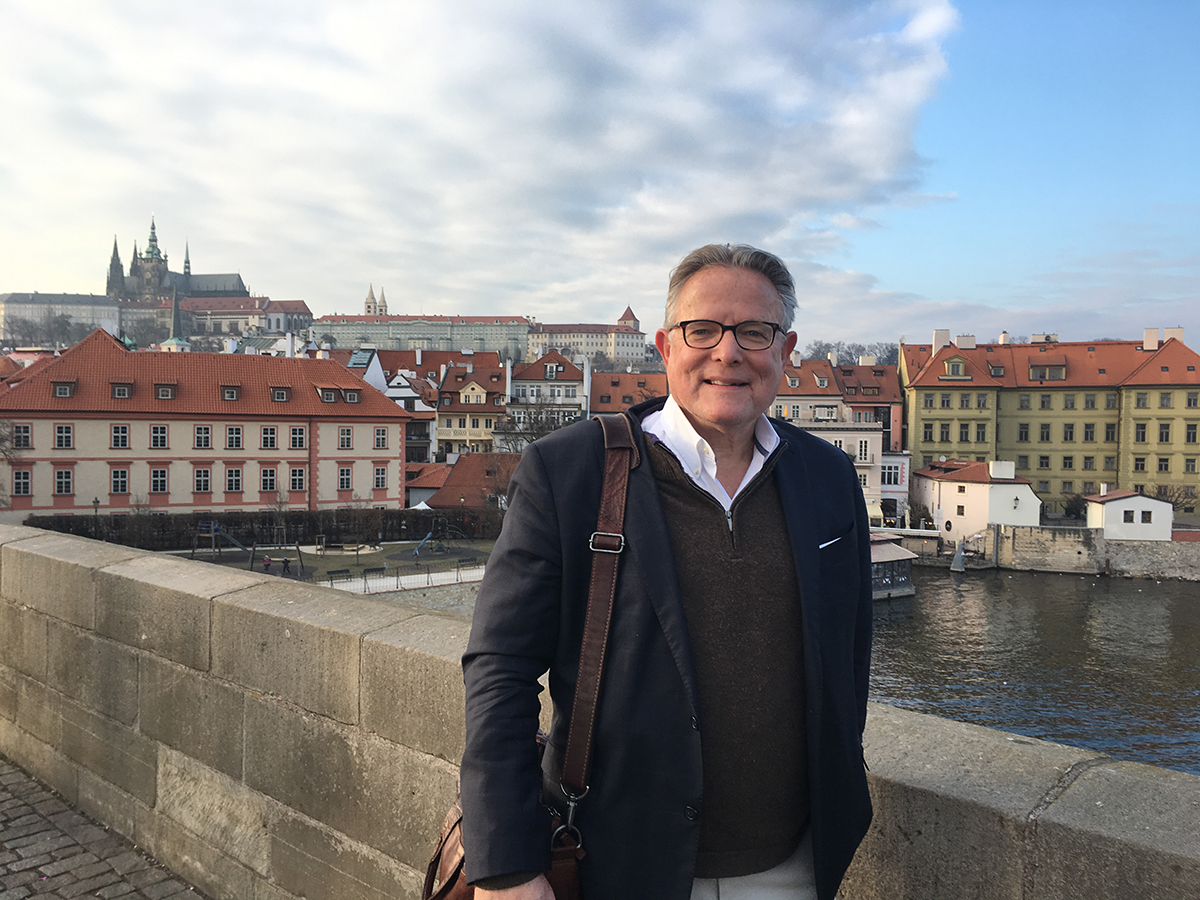Klein College’s leadership on solutions-based journalism is having a worldwide impact. Dean David Boardman, a proponent of social journalism work since his days at editor of The Seattle Times, spent a week as a lecturer on the topic in the Czech Republic, Slovakia, Austria and Poland. The speaking tour came at the invitation of Ashoka, a nongovernmental organization that invests in social entrepreneurship.
Solutions journalism advocates explain the trend as not only focusing on the problems society faces but as a vehicle to present possible ways to address them with clear cut solutions. It’s not meant to be advocacy but rather a push to action.
According to Boardman, a journalist might focus on the most negative story because he/she considers that to be the most newsworthy. But solutions journalism posits that if one reports on what someone somewhere is doing right, the same solutions may be used in parts of the world where things are going wrong.
At the Seattle Times, Boardman helped started a project called Education Lab. Despite being a wealthy, technologically advanced state, Washington state’s school system was in big trouble. Instead of just reporting on the problem, the project secured a grant from the Gates Foundation, creating a team of reporters to search around the nation for solutions to the city’s ongoing issues. As a result of the reporting, the Washington State Legislature passed a bill requiring school districts and juvenile courts to establish community truancy boards, keeping students in school and out of trouble.
Boardman said these results were inspiring. He now sits on the board of the Solutions Journalism Network.
“Negative news promotes a sense of helplessness and news fatigue which leads to people tuning out,” said Boardman. “When they think there is a solution, they’re much more involved.”
Not only did Boardman experience how the Times articles changed policy but he saw how they benefited the paper as well.
As Boardman noted in his presentation, solution-focused education stories did far better with readers online than other education stories did. Compared with routine education stories, page views for solutions stories were 102 percent higher, time spent with the stories online was 80 percent higher and the stories were shared on social media more than three times more often.
These numbers are consistent elsewhere. A study in the Journal of Marketing Research took a look at 7,000 articles from The New York Times’ articles and found that “positive content is more viral than negative content.” With other newspapers experiencing a decline in readership, these statistics are welcome news for the industry.
To help spread the word about the issue, Boardman took interviews with major media conglomerates in every nation he visited. In an interview with the Czech show Newsroom ČT24, he discussed the value of solutions journalism and the impact he’s seen in the United States.
His favorite moment came when he was speaking to a Polish journalist. In the interview, Boardman didn’t claim to have all the answers and the reporter replied, “You’re the first American we’ve heard say, ‘I don’t know.’”
The dean’s visit to these countries could not have a more important time.
“What surprised me most was how in all four of these countries the degree to which that they have these right wing populist movement,” Boardman said. “What they said could have come right out of the mouth of Donald Trump.”
Boardman said one of the most surreal moments came when he spoke at the U.S. Embassy in Prague. As he stood behind a podium with the official U.S. national seal, he criticized President Trump’s aggressive, dismissive approach to legitimate press outlets such as The New York Times and The Washington Post, which the president routinely labels “fake news.”
Boardman also discussed the important work Klein College does in the field. An example is Professor Jill Bauer’s course called “Solutions Journalism: Covering Addiction,” where students spend a full semester reporting on addiction and recovery solutions in Philadelphia. The students’ website, “Living Free,” highlights the ways people in the area are dealing with these issues.
“It’s important to highlight the work [students] do here,” said Boardman. “They’re not just preparing for the future, they’re making a difference now.”

